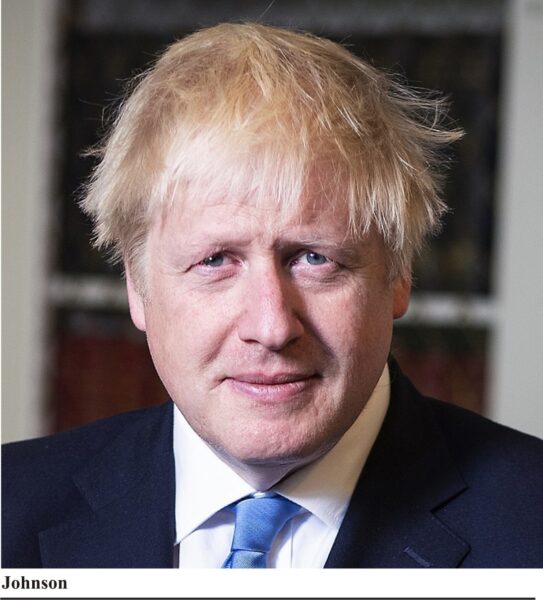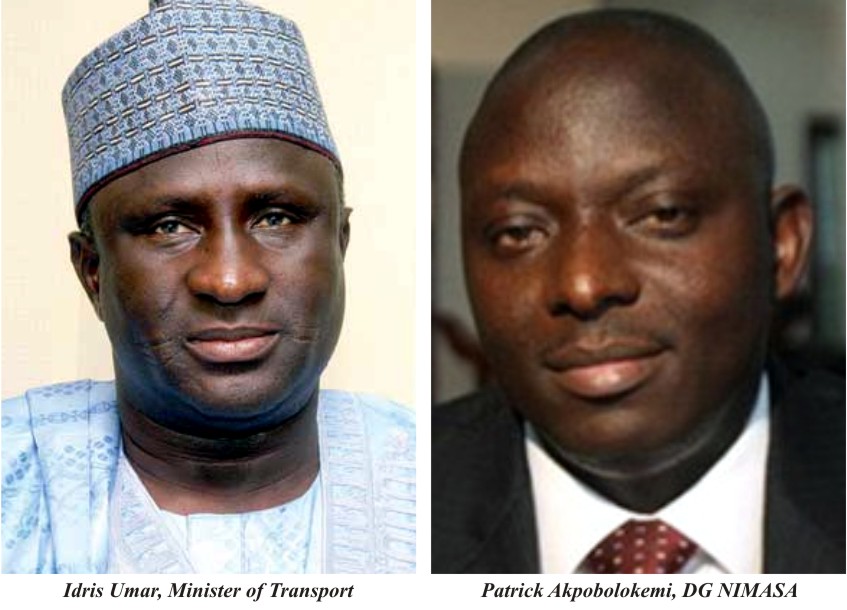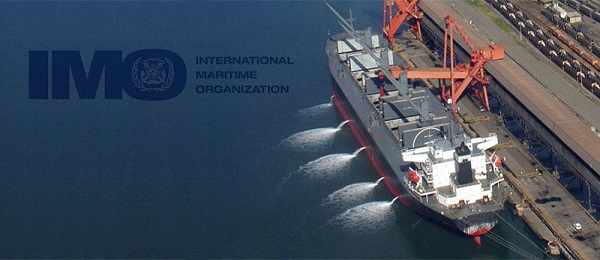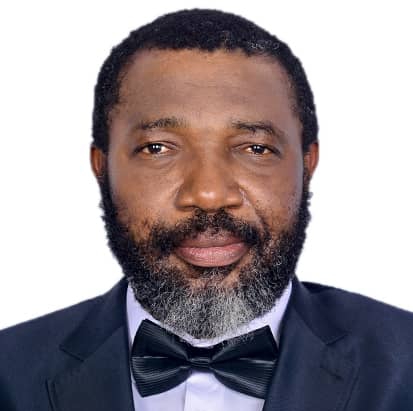COMMENTARY
How Boris Johnson’s Government Finally Collapsed
By Sam Knight
- In twenty-four hours, more than three dozen ministers and aides deserted the Prime Minister.
- Boris Johnson leaves 10 Downing Street.
In recent weeks, Johnson has seemed increasingly out of touch. His bombast and optimism—a powerful political tonic—have come across as discordant.Boris Johnson announced his resignation just after 12:30 p.m. in the U.K. on July 7th, indicating that he will stay on as Prime Minister until a new leader of the Conservative Party is elected. “Them’s the breaks,” he said.
At 6:02 p.m. on Tuesday evening, Sajid Javid, the British Health Secretary, announced his resignation from Boris Johnson’s government. Nine minutes later, Rishi Sunak, the Chancellor of the Exchequer, and the country’s second most powerful elected official, also quit. Javid and Sunak are both telegenic, superficial, and right-of-center British politicians who are not known for their ideological stances or, indeed, for their moral character. Before entering politics, Javid was an executive at Deutsche Bank. Sunak has a background in hedge funds. Both have worked closely with Johnson and stood by him since he became Prime Minister, almost three years ago. But, on Tuesday night, they saw the end. “We may not have always been popular, but we have been competent in acting in the national interest,” Javid wrote, in his resignation letter. “Sadly, in the current circumstances, the public are concluding that we are now neither.” Sunak said he was leaving because voters expected the government to be run seriously. “We cannot continue like this,” he wrote.
The double resignation was the start of a twenty-four-hour putsch in which more than three dozen ministers and aides deserted Johnson—his moral authority had evaporated some time ago—and left the nation with gaping holes in its government. Junior ministers, the solicitor general, and the U.K.’s trade envoy to Kenya were among the first out the door. “I just don’t think the Prime Minister any longer has the support—not just my support but he doesn’t have the support of the Party, or indeed of the country, anymore,” Bim Afolami, the Conservative Party’s vice-chair, told a cable news show at 7:28 p.m. “You’re the vice-chairman of the Conservative Party,” the anchor said. “Probably not, after having said that,” Afolami replied.
The momentum grew on Wednesday morning. During a radio interview on the BBC, Nadhim Zahawi, Sunak’s hastily appointed successor as Chancellor, was informed that a colleague had resigned while he was on the air. By the time Johnson stood up to face Prime Minister’s Questions, in the House of Commons, at noon, it was becoming hard to keep count of the resignations, or to know on which social-media platform to find them. “I can no longer pirouette around our fractured values,” Victoria Atkins, a minister responsible for prison operations and policy, wrote in her resignation letter, which she posted on Instagram. At around 2:30 p.m., five junior ministers resigned en masse in a collective letter that looked like a farewell card which had been passed around the office. By a stroke of misfortune, or cruel planning by his rivals, Johnson had to spend the afternoon being questioned by a senior parliamentary committee about the progress of his government. “How is your week going?” Darren Jones, a Labour Member of Parliament, asked him. “Terrific,” the Prime Minister replied.
As darkness fell in London, Johnson was reportedly taking meetings with members of his party. Some were telling him to go; others were urging him to stay. According to various reports, Johnson was determined to stay in office, despite the staggering political damage. In the past, he was more perceptive about others in his current position. “I tell you that the prime minister will not go early—because it is simply not in his nature. It is a wonderful and necessary fact of political biology that we never know when our time is up,” Johnson wrote, in 2006, about Tony Blair. “We kid ourselves that we must stay because we would be ‘letting people down’ or that there is a ‘job to be finished.’ In reality, we are just terrified of the comedown.”
Since the “Partygate” scandal broke, in December—during which Johnson, being Johnson, first denied and then half-admitted and then apologized for breaking covid rules during lockdowns—each week has seemed to bring another scandal for his government, so it’s understandable if you missed the details of this one. On June 30th, Chris Pincher, a Conservative Member of Parliament and the Party’s deputy chief whip—responsible for the welfare of his fellow-M.P.s—resigned after getting drunk at the Carlton Club, the Party’s gentleman’s club on Pall Mall, and allegedly groping two men in a bar. “Last night I drank far too much,” Pincher wrote in his resignation letter to Johnson. “I’ve embarrassed myself and other people which is the last thing I want to do and for that I apologise to you and to those concerned.” He is coöperating with an investigation into his behavior.
In the course of five days, ministers and Downing Street officials denied that Johnson was aware of past complaints against Pincher of predatory behavior when the Prime Minister first promoted him to the job, in February. (Spoiler alert: he was.) In the slippery, weasel language of Westminster, of which Johnson is a native speaker, officials said that Johnson did not know about “specific allegations” and claimed that the accusations “were either resolved or did not progress to a formal complaint.” On Tuesday morning, Lord McDonald of Salford—the former top official at the Foreign Office—called bullshit, publishing a letter on Twitter saying that Pincher had been previously accused of similar behavior, that an investigation upheld the complaint, and that Johnson had been personally briefed on the situation. “The original No 10 line is not true,” McDonald wrote, referring to 10 Downing Street, “and the modification is still not accurate.” Johnson acknowledged that a complaint had been raised with him and said that he should have acted on it, but he also said, “I’m fed up with people saying things on my behalf or trying to say things about what I did or didn’t know.”
The dread of being sent to another TV studio in response to yet another tawdry story and dubious denial may be what pushed Javid, Sunak, and the rest to the edge. But Johnson’s constant lying was only a symptom of a deeper condition, which is an absence of purpose for being in government at all. As the resignation letters piled up on Tuesday night, Johnson’s former appointees seemed to search for ways to describe this hollowness. Andrew Murrison, the trade envoy to Morocco, described the “rolling chaos” of his premiership. Even backbench Conservative M.P.s, who don’t hold official government positions, published resignation-style letters in which they mused on what has gone wrong. “Government is not working for most people,” Robert Halfon, an M.P. for Harlow, in Essex, mused. “Much policy delivery is a mirage.”
In recent weeks, Johnson has seemed increasingly out of touch. His bombast and optimism—a powerful political tonic that enabled Brexit, and all its vicissitudes, to take place—have come across as discordant. Last month, after a hundred and forty-eight Conservative M.P.s, or forty-one per cent of the total, joined a vote of no confidence in him as leader, Johnson described the outcome as an “extremely good, positive, conclusive, decisive result.” A few weeks later, on a visit to Rwanda, he said he was “actively thinking” about a third term.
At the Prime Minister’s Questions on Tuesday, Johnson reached for his usual bluster, but it was not there. His shirt came untucked. He turned his body sideways and addressed most of his answers—to questions about his mendacity, his future, and Pincher—to the Speaker of the House, rather than see the embarrassed faces of his Party colleagues behind him, or the glee of the opposition benches across the way. At one point, when Johnson tried one of his usual attack lines on the Labour leader, Keir Starmer, and his team, the Labour front bench began to wave farewell, in unison. Ian Blackford, the parliamentary leader of the Scottish National Party in Westminster, compared Johnson to a dead parrot. Some Conservative M.P.s used their questions to encourage the Prime Minister to step down. “We’re going to get on with our jobs,” Johnson said.
When the questions were over, Johnson had to sit through Javid’s resignation speech, which effectively urged the rest of Johnson’s team to abandon him. “I know just how difficult this choice is. But let’s be clear. Not doing something is an active decision,” he said. When Javid sat down, Johnson hustled for the exit, head down, his shirttails trailing behind him. The voices of M.P.s followed him out the door: “Bye, Boris!” ♦







